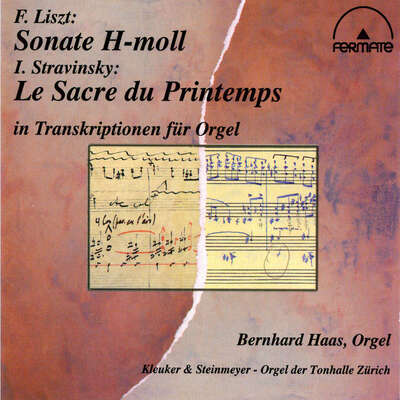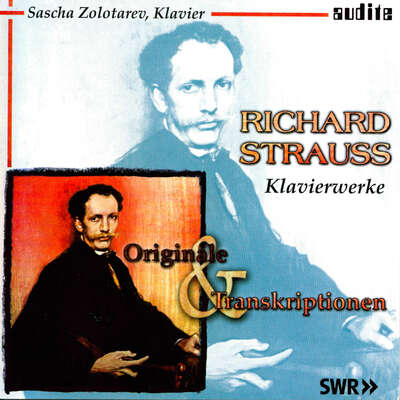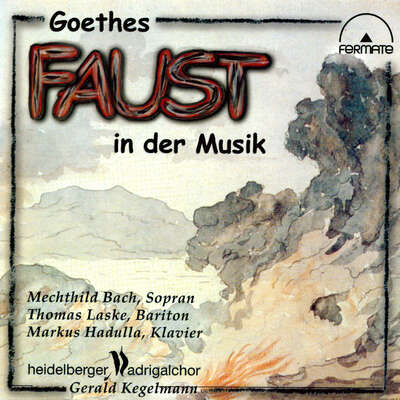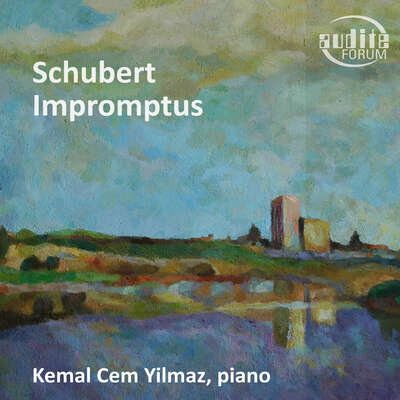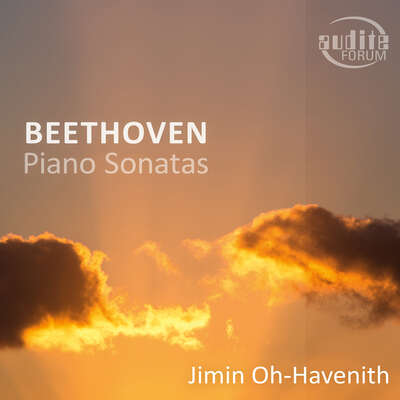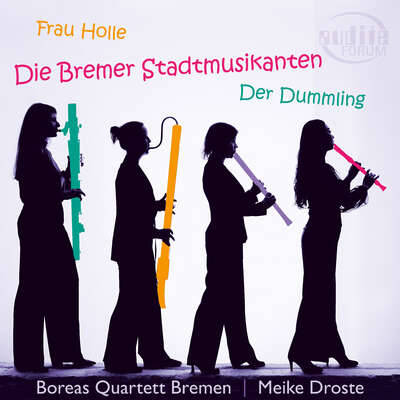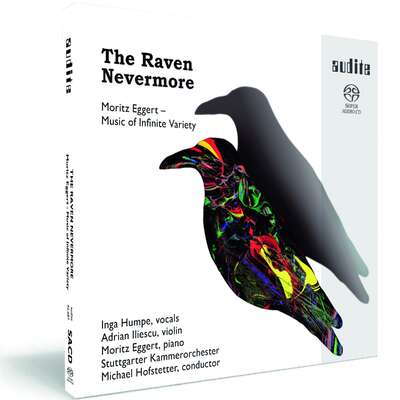
Avant-guarding Mompou - Ein Kaleidoskop zeitgenössischer Musik: Die "Cançons i Danses" von Mompou - von französischen Impressionisten beeinflusst - werden in der vorliegenden Aufnahme mit Auftragswerken vier spanischer, eines griechischen, eines tschechischen, eines französischen, eines englischen und eines deutschen Komponisten gemischt. Die Zusammenstellung eröffnet überraschende Querbezüge und übersetzt den Titel ('Mompou zeitgenössisch machen') auf ganz eigene Weise.mehr
Avant-guarding Mompou - Ein Kaleidoskop zeitgenössischer Musik: Die "Cançons i Danses" von Mompou - von französischen Impressionisten beeinflusst - werden in der vorliegenden Aufnahme mit Auftragswerken vier spanischer, eines griechischen, eines tschechischen, eines französischen, eines englischen und eines deutschen Komponisten gemischt. Die Zusammenstellung eröffnet überraschende Querbezüge und übersetzt den Titel ('Mompou zeitgenössisch machen') auf ganz eigene Weise.
Titelliste
Diesen Bonustrack erhalten Sie ausschließlich als Download!
Details
| Avant-guarding Mompou | |
| Artikelnummer: | 20.044 |
|---|---|
| EAN-Code: | 4022143200440 |
| Preisgruppe: | BCB |
| Veröffentlichungsdatum: | 3. April 2020 |
| Spielzeit: | 93 min. |
Zusatzmaterial
Informationen
Besprechungen
El Compositor habla | 02/12/2020 | 2. Dezember 2020 | Quelle: https://www.elco...
El día 3 de diciembre de 2020 a las 20,30 horas en el Teatro de Valls, enMehr lesen
Revista Musical Catalana | 17 agost, 2020 | Lluís Trullén | 17. August 2020 | Quelle: http://www.revis... Afinitats estètiques diferents basades en la particular estètica de Mompou
La gènesi d’aquest enregistrament cal buscar-lo quan la pianista MariaMehr lesen
International Piano | May/June 2020 | Michael Johnson | 1. Mai 2020
Voice of silence
Misunderstood and neglected in his lifetime, the solitary Catalan composer Federico Mompou is finally being championed for his meditative miniatures. Michael Johnson reports
The quiet, calming strains of the late Catalonian composer Frederico Mompou seemed so nebulous that he was not taken seriously outside of Spain duringMehr lesen
Pla has a point. Recently, there are signs of a global Mompou revival as pianists discover him and master his finely balanced harmonies. Recital programmes and several new albums attest to his broadening appeal. Mompou, who died in 1987 at the age of 94, would be surprised and probably pleased to receive this recognition.
The attraction of Mompou‘s music is in its atmosphere and moods, not in Bach-like rigour or Beethovenian structures. His compositions rarely last more than three minutes, aiming to strip out superfluous notation and leave only the essentials. His music has been compared favourably to the works of Anton Webern and Alban Berg – but with tonality.
Mompou‘s harmony 'needs no more than an almost-nothing, a semitone, an aberrant note, and the almost-perfect chord to become "imperfect"... He never completely severs his original link to "sonorous voluptuousness", writes the French musicologist Vladimir Jankélévitch in his notes accompanying the 2009 release of Mompou performing his own music: Mompou: The Complete Piano Works (Brilliant Classics 6515).
Arcadi Volodos, the Russian virtuoso now living in Spain, helped trigger the revival a few years ago with his recitals and album Volodos plays Mompou (Sony 88765433262). He reportedly had to cajole Sony Classics into backing the project, initially dismissed as 'bad business'. Planning an appearance at Vienna's Musikverein, Volodos was even urged to ditch Mompou from his proposed programme. The Viennese advised him: 'Give them Schubert!' Volodos insisted on his Catalonian discovery and has never looked back.
Volodo's delicate interpretations scored a surprise hit for Sony, prompting the label to admit they had underestimated the Catalan master. The album sold well and inspired many international players including Daniil Trifonov, Stephen Hough, Benjamin Grosvenor, Guillaume Coppola, Judith Jáuregui and Ernest So, to present their own selections from Mompou‘s voluminous output. His miniatures have even started turning up on Yuja Wang‘s latest programmes.
Another notable Mompou interpreter is the English pianst Imogen Cooper, who brings an eerie lyricism and profound introspection to Cancon y danzas (Songs and Dances) Nos 1 and 6 on her 2019 album Iberia y Francia (CHAN20119). Meanwhile, Andrew Tyson‘s latest release on the Alpha label presented an interesting selection from Mompou‘s Paisajes (Landscapes) series (ALPHA546).
More recently still, the promising young Catalonian pianist Maria Canyigueral has combined music by Mompou with eight Mompou-inspired miniatures she commissioned from European composers. Her album Avant-guarding Mompou was launched last month on the audite label (AUDITE20044). Canyigueral, who is now London-based following her Royal Academy studies, likens Mompou‘s spare compositions to 'a winter tree – raw and pure', full of vitality but not ornamented with leaves. 'I connect with them emotionally', she says. 'Mompou evokes beauty, good intentions, hope, joy. Mediterranean spirit, sincerity and sensitivity'.
Mompou developed his style partly as a result of childhood disorders that his biographer Pla believes might be diagnosed today as Asperger‘s syndrome. All his Iife he was uncommunicative and somewhat solitary. Mompou himself liked to say, 'I am a man of few words and a musician of few notes.' Son of a French mother and Spanish father, he demonstrated enough talent to be accepted at the Paris Conservatoire when Gabriel Fauré was at the helm. He ended up spending 20 years in Paris mixing with leading music personalities but never quite emerging on his own.
Why this late bloomining? Is it perhaps understandable, considering that Mompou himself described his music as 'a weak heartbeat'? Pla believes it was ahead of its time: appreciating it requires an attitude of contemplation and meditation'.
Ernest So has reflected on Mompou’s rebirth. 'I think seasoned listeners and pianists have overdosed on Liszt, Chopin and Rachmaninov, but are now seeking out different spiritual and cathartic experiences’, he explains. 'I, for one, find performing Mompou a distinctly different experience from playing anything else.' An adoptive Catalonian, So says he likes to pause zen-like at the piano and imagine the Catalan countryside 'before I let out the first chords'.
French pianist Guillaume Coppola is another fan, whose 2019 album Musique de Silence (Eloquence E1857) places Mompou‘s music in a wider historical context. He interweaves Mompou miniatures with pieces by Chopin, Debussy, Satie, Granados, Scriabin, Ravel, Dutilleux and Takemitsu. Coppola‘s dogges research reveals echoes of these composers hidden away in many of Mompou‘s works. Studying urtext and autograph scores wherever possible, Coppola analysed the pieces measure by measure, hearing sonorities and nothing shared influences. He focused on the 28 miniatures called Música callada ('Voice of Silence'), identifying resonances as well as free associations. For example, a Scriabin prelude comes before a Mompou gem marked 'Lento, plaintif', while a Satie Gnossienne precedes 'Secreto' from Mompou‘s 1912 collection Impressiones intimas.
About half of Coppola‘s selections are taken from Música callada, including the album‘s title, Volodos has called this oeuvre, which Mompou composed near the end of his days, 'without a doubt the summit of his achievment, the music he spent all his life movingtoward'.
As Coppola devoted more time to his research, 'more subtle convergences occured to me,' he writes in his booklet notes. 'The post-Romantic accents appear in some pieces, or clusters of resonant chords à la Dutilleux, or the diaphanous clours of Debussy, or the play of light of Ravel'. Out of them comes a warm feeling of peace.
Coppola has performed Música callada in recitals around France, barely stopping to pause between pieces. 'The public hears this music as a single work', he explains, 'and seems to love the flow'. The audience is asked to withhold applause so as not to disturb the quiet. Even the pianist needs to achieve inner peace before touching the keyboard. 'I breathe deeply and slowly, I push the diaphragm down, like a singer', says Coppola. 'I want physical relaxation so as to achieve supple movements. I put myself in a sort of bubble of silence and serenity.'
Volodos believes he has divined the power of Mompou‘s style. 'I would say he is not trying to be heard but rather is attempting to be united with the listener in musical silence… The listener can feel the solitude acutely – not as a void but as a source of plentiful spiritual tension'.
www.pizzicato.lu
| 26/04/2020 | Remy Franck | 26. April 2020 | Quelle: https://www.pizz...
Notizbuch eines Rezensenten – CD-Kurzrezensionen von Remy Franck (Folge 265)
Mompou zeitgenössisch dekoriert
Die spanische Pianistin Maria Canyigueral hat bei Audite Forum eine CD unter dem Titel Avant-Garding Mompou herausgebracht. Auf ihr stellt sie dieMehr lesen
Facts & Arts | Apr 16th 2020 | Michael Johnson | 16. April 2020 | Quelle: https://www.fact... Bringing Federico Mompou’s work bang up to date
[...] she performs all the Mompou selections and six of the commissioned pieces with confidence and verve on her new CD.Mehr lesen
Fundació Conservatori Liceu | 15/04/2020 | 15. April 2020 | Quelle: https://www.cons... L’Alumni Maria Canyigueral publica el disc ‘Avant-guarding Mompou, enregistrat a l’Auditori de la Fundació Conservatori Liceu
L’obra única de Frederic Mompou, interpretada amb el talent de Maria Canyigueral i el complement de músics amb una perspectiva externa, donen com a resultat una interessant versió del folklore català. Mehr lesen











